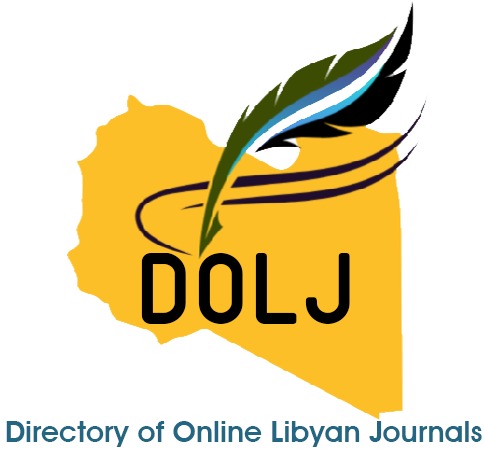Validity of Selective Management in Trans pelvic Gunshot Wounds
- Authors
-
-
Esam Alsaghair
Department of Surgery, Faculty of Medicine, University of Misurata, Misurata, LibyaAuthor -
Taher Alkesa
Department of Surgery, Faculty of Medicine, University of Misurata, Misurata, LibyaAuthor -
Wesam Elsaghayer
Department of Pathology, Faculty of Medicine, University of Misurata, Misurata, LibyaAuthor
-
- Keywords:
- Gunshot Wounds, Selective Management, Non-Operative Management
- Abstract
-
The purpose of this study was to assess the validity of selective management in patients presenting with penetrating transpelvic gunshot wounds. In hemodynamically stable individuals who do not exhibit significant clinical warning signs, non-operative management may be a safe and viable approach. This method, known as selective management, emphasizes the identification of patients who do not necessitate immediate surgical intervention following such trauma. A retrospective analytical study was carried out at the Department of General Surgery, Misurata Teaching Hospital, over two years from February 17, 2011, to February 16, 2013. All patients admitted with transpelvic gunshot injuries were treated according to a predefined management protocol. Surgical exploration via laparotomy was reserved for cases showing clear clinical indicators, such as peritoneal signs, hemodynamic instability, gross hematuria, or rectal bleeding. Patients who did not exhibit these signs were managed conservatively and kept under close observation. The diagnostic accuracy of this selective approach was evaluated by calculating sensitivity, specificity, positive predictive value (PPV), negative predictive value (NPV), and overall accuracy. A total of 37 patients were included in the study and categorized into two groups. The first group consisted of 16 patients (43.2%) who underwent immediate laparotomy based on initial clinical assessment. In 15 of these cases, the procedure was deemed therapeutic. The clinical examination in this group demonstrated a sensitivity of 68.2%, a specificity of 92.3%, a PPV of 93.8%, and an NPV of 63.2%. The second group comprised 21 patients (56.8%) who were managed conservatively under the selective non-operative protocol. Among these, nine patients (24.3%) eventually required delayed surgery due to emerging clinical symptoms, although two of these laparotomies were non-therapeutic. The remaining twelve patients (32.4%) were successfully treated without surgery. For this group, the selective protocol achieved a sensitivity of 100%, specificity of 85.7%, PPV of 77.8%, and NPV of 100%. In conclusion, selective management appears to be a safe and effective strategy for reducing the incidence of unnecessary laparotomies in cases of transpelvic gunshot wounds. The cornerstone of this approach remains careful clinical examination, supplemented by appropriate diagnostic tools. As the adoption of selective non-operative protocols becomes more widespread, the rate of non-therapeutic surgical interventions continues to decline. Nevertheless, the success of this strategy depends heavily on accurate patient selection and strict adherence to the established management criteria.
- References
- Cover Image
-

- Downloads
- Published
- 2025-06-16
- Issue
- Volume 1, Issue 2, 2025
- Section
- Articles
How to Cite
Most read articles by the same author(s)
- Wesam Elsaghayer, Wafaa Babh, Ali Shagan, Misbah Elfagih, Esraa Obida, Ebrahim Elmahjoubi, Mohamed Bashagha, Mohamed Elfagieh, Sentinel Lymph Node Metastasis in Breast Cancer: The First Libyan Report with Hormonal Profiling and International Comparison , Razi Medical Journal: Volume 1, Issue 3, 2025
- Faisal Ali Matoug, Taher Alkesa, Esam Alsaghair, Fathi Elzowawi, Wesam Elsaghayer, Acute Intestinal Obstruction: A Retrospective Study at Misurata Medical Center , Razi Medical Journal: Volume 1, Issue 4, 2025
Similar Articles
- Amhamad Alhajaji, Salem Almiladi, Ahmed Alhammali, Surgical Repair of Congenital Chest Wall Deformity (Pectus Excavatum): A 20-Year Multicenter Experience , Razi Medical Journal: Volume 1, Issue 1, 2025
- Hosam Elarabi, Salem Salem, Rajaa Fadel, Wafa Abozaid, Abdullah Ahmad, Ahmed Shtawa, Moftah Ali, Assessment of Fluoride Concentration in Drinking Water and Its Correlation with Dental Caries in Primary School Children in Gharyan, Libya , Razi Medical Journal: Volume 1, Issue 2, 2025
- Amhamed Alhajaji, Faisal Abufalgha, Acute Intestinal Obstruction: Surgical Considerations , Razi Medical Journal: Volume 1, Issue 4, 2025
- Ahmed Aniba, Mustafa El-ahmar, Omar Danfour, Fathe Abulifa, Mona Abujazia, Mohammed Elfagieh, Integrated Surgical and Anesthetic Management of Pediatric Small Bowel Obstruction Due to Foreign Body Ingestion: A Comparative Case Series on Anatomical and Perioperative Implications , Razi Medical Journal: Volume 1, Issue 4, 2025
- Basheer Alhadheeri, Comorbidities and Treatment Outcomes of Acute Appendicitis at a Tertiary Center in Libya , Razi Medical Journal: Volume 1, Issue 3, 2025
- Nawfal Hussein, Liwar Ahmed, Halder Abozait, Antimicrobial Resistance in Iraq: A Public Health Emergency in the Shadow of Conflict , Razi Medical Journal: Volume 1, Issue 3, 2025
- Salem Swieb, Mohamed Elzwawi, Malik Delheen, Evaluating Outcomes of Percutaneous Nephrolithotomy Versus Flexible Ureteroscopy for Renal Calculi: A Retrospective Observational Study in Misrata, Libya , Razi Medical Journal: Volume 1, Issue 4, 2025
- Shahad Alwan, Molecular detection of the MexA efflux pump gene in Pseudomonas aeruginosa isolated from Diyala Province , Razi Medical Journal: Volume 1, Issue 3, 2025
- Muftah Elbahloul, Khadija Amer, Sana Alghennai, Mohamed Jahan, Hussien Elaswdi, Manal Abusebbara, Ans Elkhodory, Mohamed Eshtiwi, Awareness of Nursing Staff in Misurata Public Health Facilities on HIV/AIDS Transmission: A Public Health, Anaesthesia, Healthcare Management and Health Education Concern , Razi Medical Journal: Volume 1, Issue 4, 2025
- Nadia Alrawaiq, Fatima Younis, Mabrouka Ismail, Identification and Evaluation of Drug-Related Problems in Patients with Reduced Kidney Function: A Retrospective Study , Razi Medical Journal: Volume 1, Issue 3, 2025
You may also start an advanced similarity search for this article.








